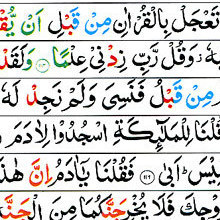Why Was Fasting Ordained?
To Allah the Almighty there are certain secrets in His laws, insights and His rulings and objective are things which minds percieve and others that confoud human understanding.
With regard to fasting, Allah declared in surah Baqara, v. 183
O you who have attained to faith! Fasting is ordained for you as it was ordained for those before you, so that you might remain conscious of God
Quran [2:183]
يَا أَيّÙهَا الَّذÙينَ آمَنÙواْ ÙƒÙتÙبَ عَلَيْكÙم٠الصّÙيَام٠كَمَا ÙƒÙتÙبَ عَلَى الَّذÙينَ Ù…ÙÙ† قَبْلÙÙƒÙمْ لَعَلَّكÙمْ تَتَّقÙونَ
Arabic text, Quran [2:183]
Accordingly, fasting is the way to piety and the fear of Allah (God). The fasting person is thus among the closest people to Allah, The Exalted in Might. The stomach of the faster becomes hungry while his heart is purified. When he breaks his fast and quenches his thirst, his eyes overflow with tears. The Prophet (pbuh) said:
O' youth, whoever is able from among you to pay the dowry, then he should marry for it is the best way of restraining the eyes and protecting one's private parts. Whoever is unable to do so, he should fast because it will be for him a shield
Fasting narrows the food and blood arteries. They are known to be canals of the devils, hence fasting reduces their insinuations. It further weakens carnal desires, thoughts and temptations of disobedience. It lightens the spirit. Fasting reminds the individual of his brothers who are also fasting, some of whom are poor and needy. He emphathizes with them and extends the hand of help to them.
Fasting is a school for the training of the soul, purification of the hear, lowering of the gaze and protection of the limbs. It is a secret between the servent and his Lord. In an authentic hadith the Prophet (pbuh) said:
Every act of the son of man is for himself except fasting; it is for Me and I shall reward it
That is because only Allah knows the extent of one's fast. It is quite different from other forms of worship such as prayers, zakaat (alms tax), and hajj (pilgrimage to Makkah), all of which can be witnessed by others.
The righteous predecessors acknowledged fasting as a means of drawing closer to Allah. To many it was accepted as a sphere of competition and a season for goodness. They cried for happiness when it arrived and wept out of sadness when it departed. Our ancestors knew the essence of fassting; hence they loved Ramadan and made unparalleled efforts and sacrifices in it. They stayed up during its nights, bowing and prostrating themselves in tears and humility.
They passed its days in remembrance, recitation, learning, propagation and giving counsel.
Fasting was a delight and source of internal peace for the early Muslims. It expanded their bosoms. Hence they trained their spirits towards its objectives, purified their hearts with its teachings and disciplined their souls with its wisdom. Numerous accounts confirm that they used to sit with their Qurans in the mosques, reciting, crying and protecting their tongues and eyes from unlawful things.
Fasting ensures the unity of Muslims. They fast and break their fast at the same time. They feel the pangs of hunger and eat together in a spirit of brotherhood, love and devotion. Fasting atones for errors and wrong-doing. Hence the Prophet (pbuh) said:
From Jumu'ah to Jumu'ah, 'Umrah to 'Umrah, and Ramadan to Ramadan there is atonement for what occurred between them as long as no major sin was committed
From a physical point of view, fasting enhances bodily health. It gets rid of contaminated matter, eases the stomach, purifies the blood, eases the working of the heart, brightens the spirit, refines the soul and disciplines the character. When an individual fasts, his soul is humbled, his hear is subdued, his ambitions are curbed, and his carnal desires are dispelled. Thus, his prayers are answered because of his closeness to Allah.
There is a great secret in fasting: that is to worship Allah and seek His pleasure by submitting to His orders and surrendering to His laws by forsaking one's desires, food and drink. Fasting therefore represents the triumph of a Muslim over his desires and the predominance of a believer over his inner self. It is half of patience. Whoever is unable to fast without any good reason, will never master his self or conquer his desires.
On the whole, fasting is a great training for the soul, so that it would be able to bear hardship and carry out its great duties such as jihad, sacrifice and initiative. Thus when Saul wanted to fight his enemies, Allah tested his people with a river:
he who shall drink of it will not belong to me, whereas he who shall refrain from tasting it - he, indeed, will belong to me; but forgiven shall be he who shall scoop up but a single handful
Quran [2:249]
Ùَلَمَّا Ùَصَلَ طَالÙوت٠بÙالْجÙÙ†Ùود٠قَالَ Ø¥Ùنَّ اللّهَ Ù…ÙبْتَلÙيكÙÙ… بÙنَهَر٠ÙÙŽÙ…ÙŽÙ† شَرÙبَ Ù…Ùنْه٠Ùَلَيْسَ Ù…ÙنّÙÙŠ ÙˆÙŽÙ…ÙŽÙ† لَّمْ يَطْعَمْه٠ÙÙŽØ¥Ùنَّه٠مÙنّÙÙŠ Ø¥Ùلاَّ مَن٠اغْتَرَÙÙŽ غÙرْÙَةً بÙيَدÙÙ‡Ù ÙَشَرÙبÙواْ Ù…Ùنْه٠إÙلاَّ Ù‚ÙŽÙ„Ùيلاً مّÙنْهÙمْ Ùَلَمَّا جَاوَزَه٠هÙÙˆÙŽ وَالَّذÙينَ آمَنÙواْ مَعَه٠قَالÙواْ لاَ طَاقَةَ لَنَا الْيَوْمَ بÙجَالÙوتَ وَجÙنودÙه٠قَالَ الَّذÙينَ يَظÙنّÙونَ أَنَّهÙÙ… مّÙلاَقÙÙˆ اللّه٠كَم مّÙÙ† ÙÙئَة٠قَلÙيلَة٠غَلَبَتْ ÙÙئَةً ÙƒÙŽØ«Ùيرَةً بÙØ¥Ùذْن٠اللّه٠وَاللّه٠مَعَ الصَّابÙرÙينَ
Arabic text, Quran [2:249]
Those who were patient and mastered their desires were successful. On the other extreme, those who worshipped their base desires turned their backs on the jihad.
The wisdom of fasting can thus be summarized in the following: that it realizes God-consciousness, submission to His orders and subjugation of one's desires. It ensures a triumph over self and the preparation of a Muslim for situations of sacrifice. It enables him to control his limbs and desires. It ensures good physical health and atones for wrong-doing. It brings about togetherness, brotherhood and sense of empathy for those who are hungry and needy. And Allah knows best.
Extracted from 30 Lessons for Those Who fast - Lesson 2 - by Aa'id Abdullah al Qarni - translated by Dr Daud A. Abdullah




